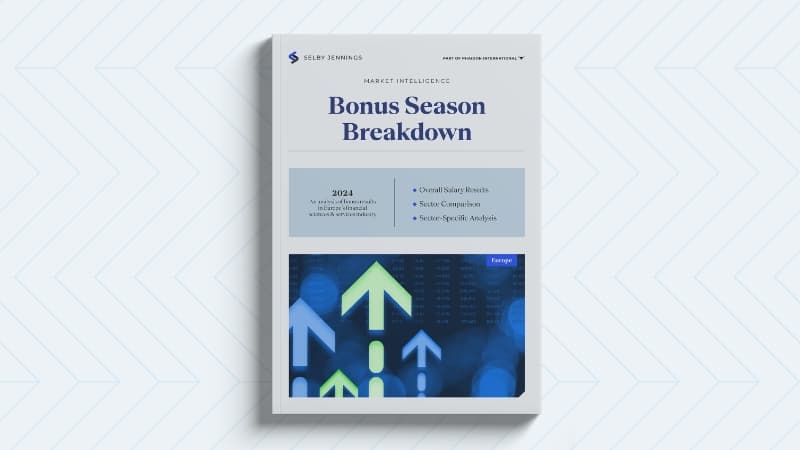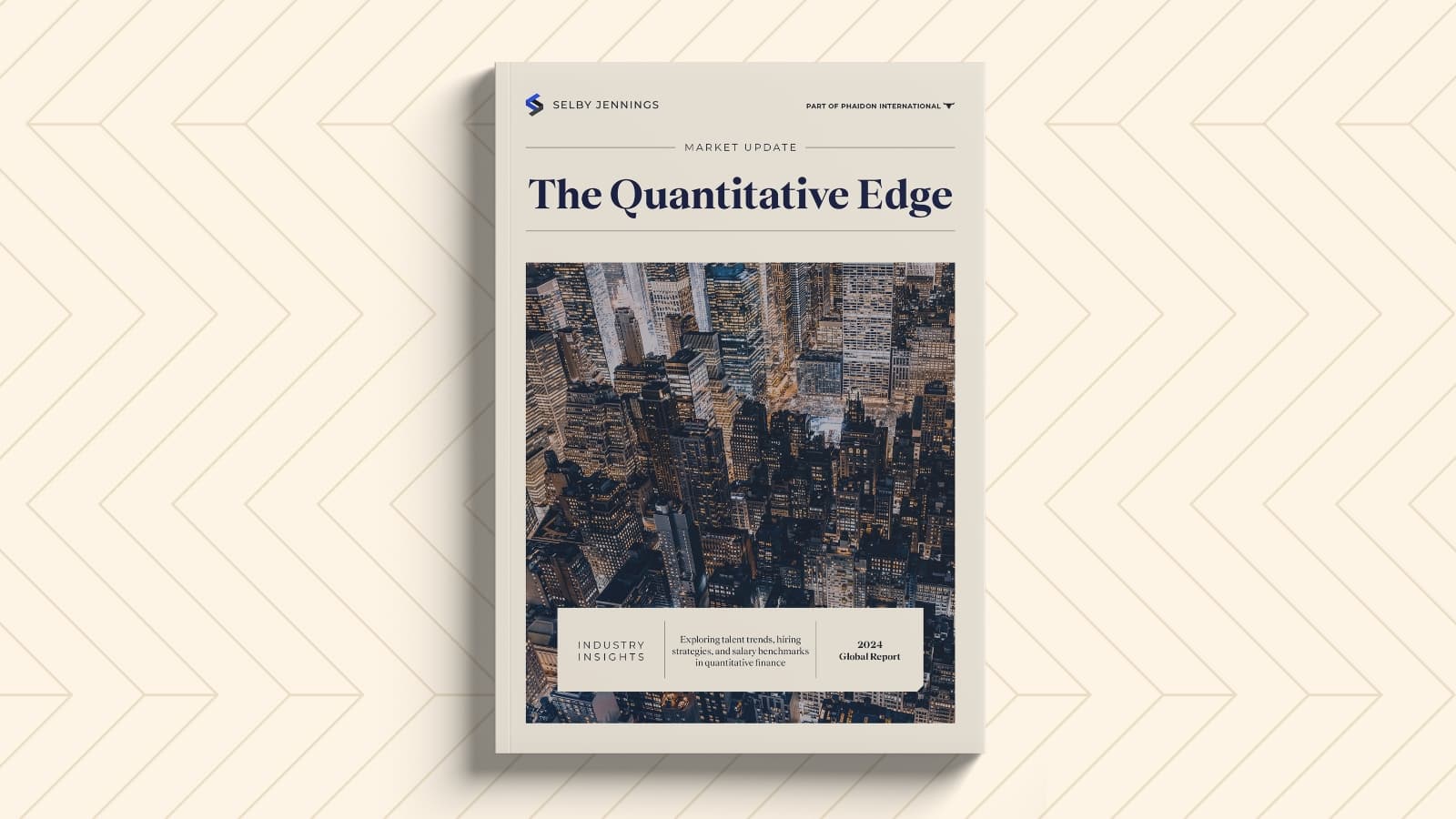Industry Insights
Welcome to Industry Insights by Selby Jennings
Powered by our extensive global talent expertise, data, and 20-year heritage, our industry insights are designed to keep you ahead of the rest.
Here, you'll find exclusive insights into the latest talent trends, strategic hiring developments, and emerging career opportunities across the financial services industry.
Featured Report
Inside the USA's Risk Management Talent Market
Struggling to hire the right risk talent - or wondering how your compensation compares?
Take an insider look at how the latest developments across key risk verticals are impacting salaries, in-demand skills, and hiring strategies for risk management roles.


Compensation Guides
How competitive is your compensation package? Explore guides covering a vast range of financial roles around the globe, based on real placement data, providing you with the information you need to make hiring or career decisions with confidence.

Market Intelligence
Based on comprehensive surveys from our network, these reports bring you in-depth market analysis and actionable advice, indispensable for both hiring managers optimizing strategies and professionals looking to benchmark against peers.

Market Updates
Gain the advantage with expert insights from Selby Jennings. Our talent specialists share guidance on the latest hiring trends and industry developments, helping financial firms attract top talent and professionals plan their next move.

Hiring Advice
From talent trends to recruitment best practices, our hiring advice offers expert insights to equip financial firms with the knowledge to hire smarter and attract, build, and retain stronger teams across every key business function.

Success Stories
Every great hire starts with the right strategy. Take a look at our case studies to see how we support financial services businesses and professionals through their toughest talent challenges, and learn how our expertise drives real growth.

Career Advice
The financial hiring landscape is constantly evolving – stay ahead with our career advice. Discover expert tips covering everything from resume optimization to salary negotiations and role-specific guidance, positioning yourself for success.
FEATURED EPISODE
Searching Smarter Podcast
How the Leading Banks Are Using AI in 2026
In this episode of the Searching Smarter podcast, we speak with Alexandra Mousavizadeh, Co-founder and Co-CEO of Evident AI, about how artificial intelligence is reshaping hiring, productivity, and competitive advantage inside banking. From the reality of job displacement to why AI-forward banks are increasing headcount, Alexandra shares what the latest Evident AI Index reveals about talent strategy, systems-level thinking, and what separates leaders from laggards in financial services.

Let’s talk talent
Need the right talent for your next hire, or guidance on your people strategy? Leverage our experience to help you and your business today.
Advancing your career
Want to be one step ahead in your career? Our industry experts have the relationships and global reach to realize your full potential.
